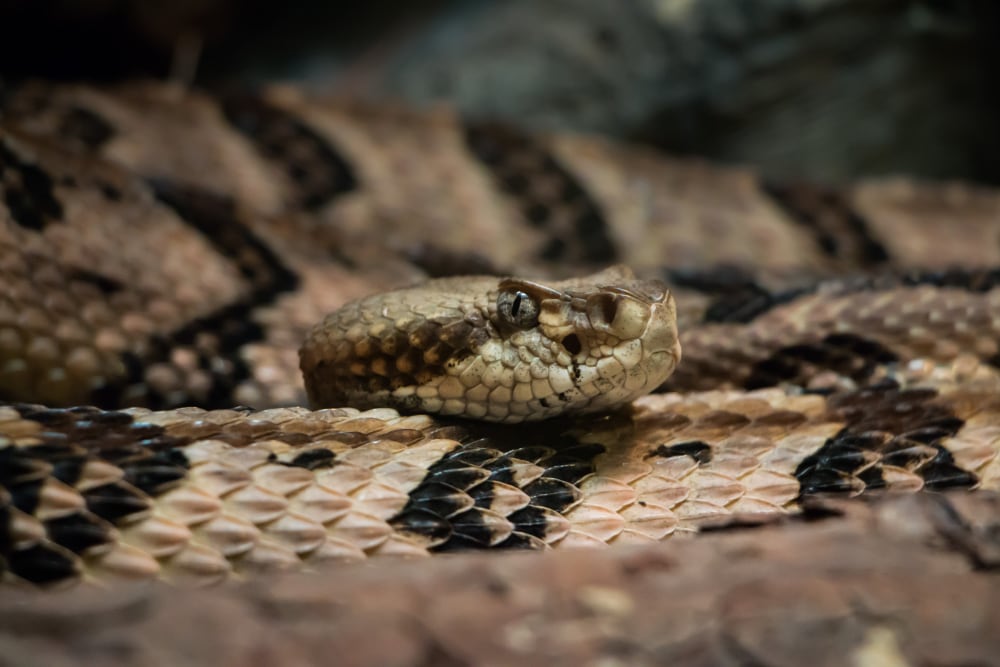If you live in the state of North Carolina, or are visiting the state and happen to see a pine snake (Pituophis melanoleucus), timber rattlesnake (Cro
If you live in the state of North Carolina, or are visiting the state and happen to see a pine snake (Pituophis melanoleucus), timber rattlesnake (Crotalus horridus), Eastern diamondback rattlesnake (Crotalus adamanteus) or the Carolina pigmy rattlesnake (Sistrurus miliarus), the state wants to know where you saw the reptile(s) and when.

Pine snakes in North Carolina threatened in the state of North Carolina. Photo by Jay Ondreicka/Shutterstock
The pine snake (listed as threatened) and the three venomous rattlesnakes are in decline in the state and all are protected by the North Carolina Endangered Species Act.
According to the North Carolina Wildlife Agency, the pine snake thought to be in decline throughout much of its native range in the state, and agency biologists are hoping that they can obtain more information with regard to the snake’s distribution. This is why they are asking for the public’s help to report any sightings of the reptile.
Venomous Snake Handling Pentecostal Minister Dies From Rattlesnake Bite
The Last Herp of the Season: In Search of Crotalus horridus
“We have partnered with the Eastern Band of Cherokee Indians to conduct surveys in the areas where pine snakes have either been seen or areas with potentially good habitat,” Gabrielle Graeter, conservation biologist with the Wildlife Commission said in a statement released to the media. “It’s difficult to conserve a species when we don’t even know all the places it occurs. Assistance from citizens in recording and documenting the pine snake will be a huge help. Websites like HerpsofNC.org are great for helping people to identify snake species.”
Who To Contact
If you see a pine snake in the wild, send an email to pinesnake@ncwildlife.org with a photo, as well as the date and time of the sighting and the location the sighting took place. Global Positioning System (GPS) coordinates are preferred and easily accessible via cell phone.
If you see one of the three rattlesnakes, send an email to rattlesnake@ncwildlife.org with a photo, as well as the date and time of the sighting and the location the sighting took place. GPS coordinates are preferred and easily accessible via cell phone by downloading the free HerpMapper mobile app at https://www.herpmapper.org/



